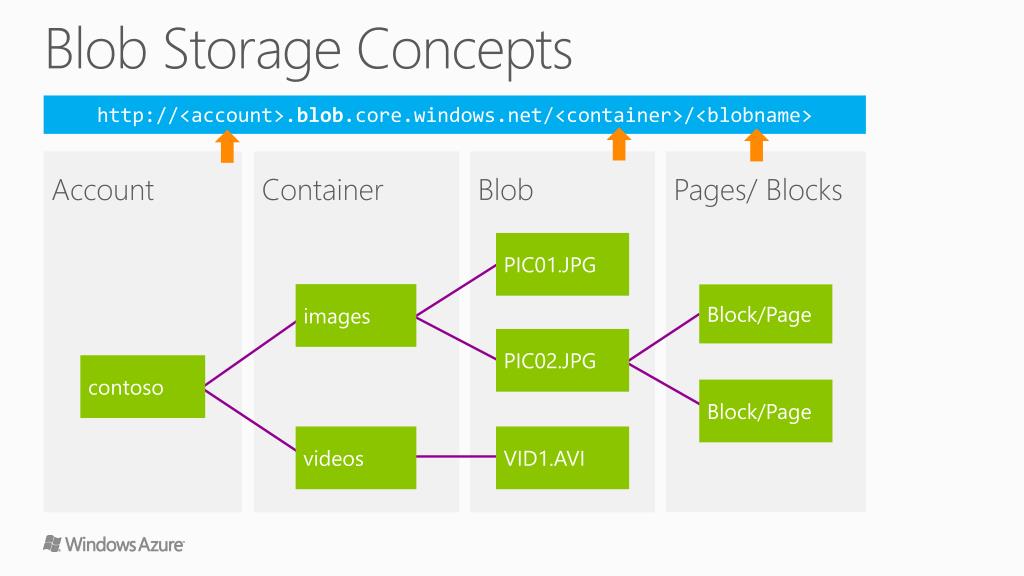
Storing and finding data is a core requirement of any business. The real question, is which one should you be using In this article, I’ll examine the various use cases for these two file storage platforms. Besides tiers, Azure has more varied types and versions of storage compared to AWS. Even though both of these platforms are suitable for file storage, they’re vastly different.On Amazon S3, you can also replicate your data cross-region, but it's a feature that needs enabling and can double your raw storage cost.Both platforms do exceptionally well compared to specialized storage providers in “eventing” (e.g., triggering AWS Lambda or Azure Functions off of storage events).You want to use storage types that automatically replicate your data cross-region.You use MBCS file formats or need Azure’s more durable object storage, which promises 16 9’s of durability in its Geo-Redundant Storage tier (GRS).Blob Blocks are used for the storage of large amounts of data effectively. If the size of the block blob exceeds the maximum allowed size, then the file is disintegrated into multiple blocks so it can be accommodated in the system. 🤔 Strongly consider Azure Blob Storage over Amazon S3 if The maximum storage capacity of a single block is 4MB, whereas the maximum size for a block blob is 200 GB. It adds unnecessary complexity and both are similarly expensive for the raw cost of storing data. If you are currently embedded in the Azure or AWS ecosystem for other reasons, there is very little reason to store your data on the other provider. The speed, scalability, ease of access, and security (both from accidents and criminals) make such cloud storage very attractive for all mid-sized and large organizations.Who Should You Choose, and Why? ✋ Stick with your principal cloud provider These will then be available all across their different departments and internationally. One of the big advantages for businesses is that Azure Blob storage allows them to collect all of their content assets in one place. When creating the address to give access to a file in Azure data storage, it will simply join the storage account and the location of the blob. For example write operations will cost you 30 more on Azure File Storage. Sometimes it can be in the cents per GB, but often the transaction costs are vastly different on the File Storage side. These are then linked to the storage account. File vs Blob Pricing The other very important thing to note is that there are pricing differences between Azure File Storage and Azure Blob Storage. With Azure Blob storage, the files (photos, videos, training documents, etc.), which are known as blobs, are put in containers which function similar to directories. Convenience Cloud storage uses native disk format with synchronous storage redundancy and erasure coding for durability.

By using Azure data storage, a company can make this material easier and quicker to access compared to it being kept on a single-location server. Azure Storage for binary large objects (blobs), including creating.
#Blob storage vs file storage code
On an enterprise level, the amount of these files, as well as log files and backups is considerably higher, hence the need for Azure.īlob storage for an organization, for example, would mean keeping backups of previous versions of a site and its content and images, which would need to be accessible from different locations. This document also provides code samples for performing different operations on Windows. In other words, it includes objects which personal users would be used to storing, such as photos, videos, and documents. While Azure data storage is generally associated with data lakes and analytics, Azure Blob storage is more focused on common storage purposes. Object storage is a computer data storage that manages data as objects, as opposed to other storage architectures like file systems which manages data as a. These are known as unstructured data because they don’t follow any particular data model.

In this case, Blob stands for Binary Large Object, which includes objects such as images and multimedia files. It allows users to store large amounts of unstructured data on Microsoft’s data storage platform. Azure Blob storage is a feature of Microsoft Azure.


 0 kommentar(er)
0 kommentar(er)
